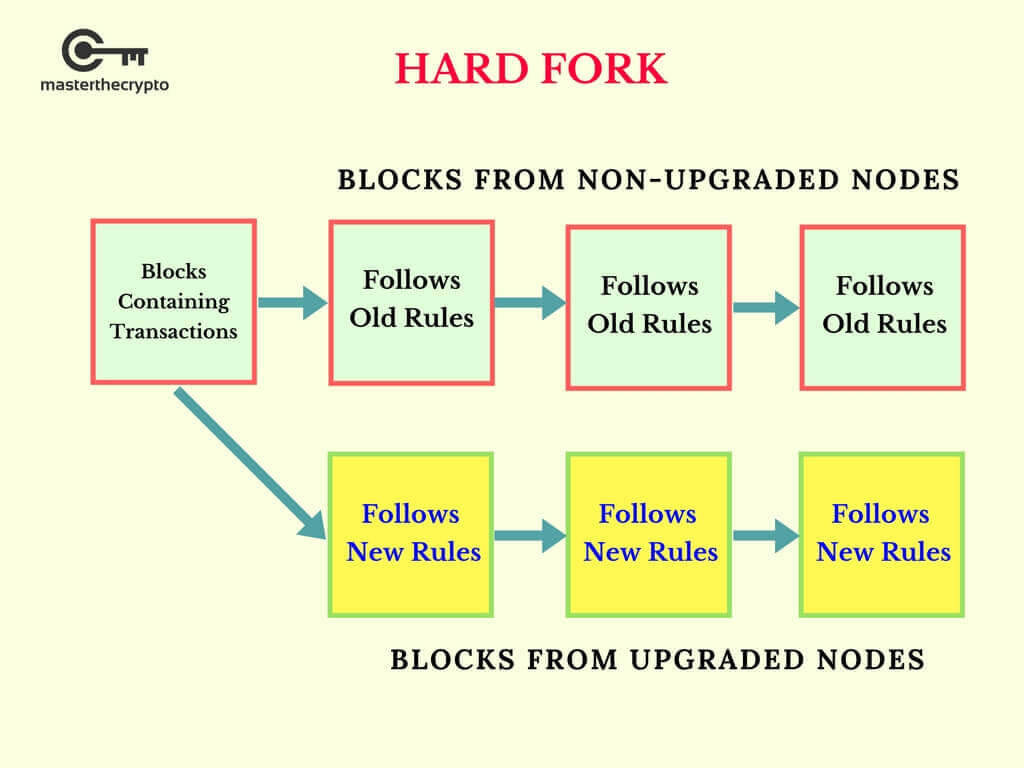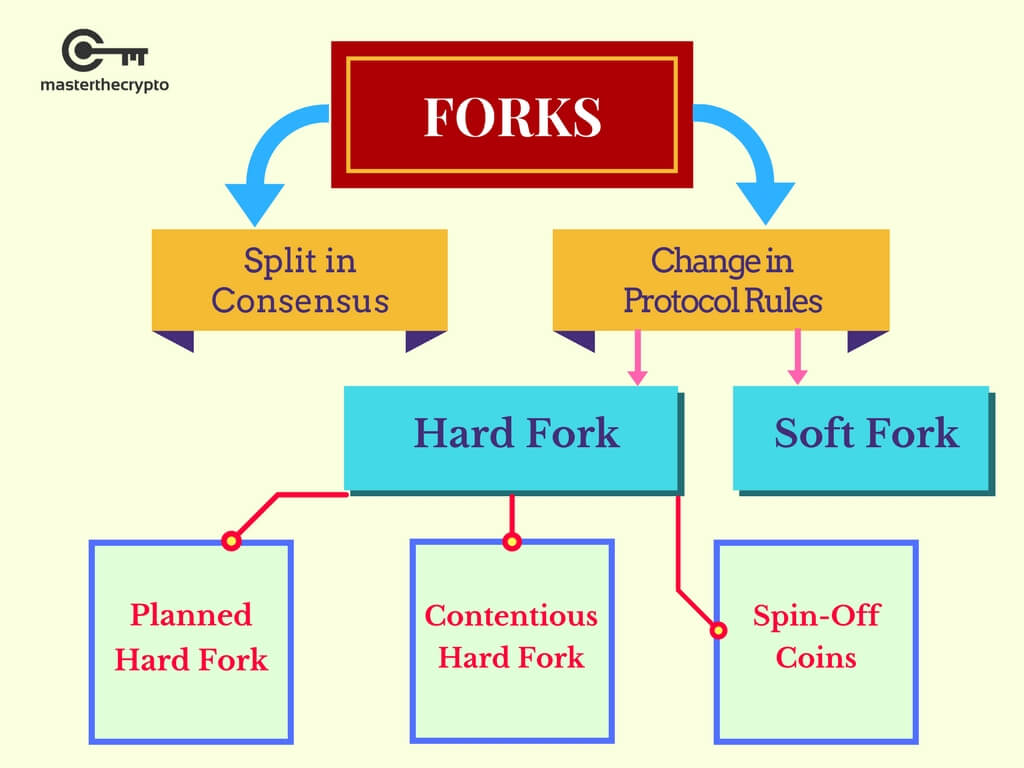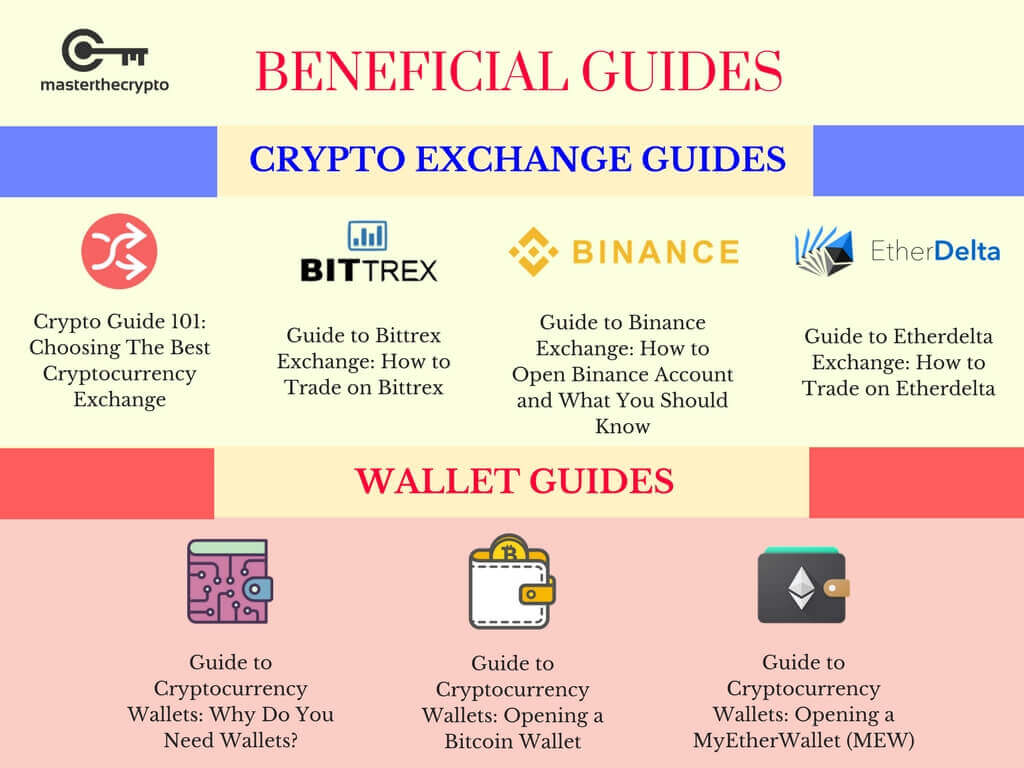This article takes a look at hard forks in cryptocurrency world, exploring whether they're seen as a chaos or innovation.
Hard forks are a phenomenon in the cryptocurrency world that has garnered polarizing views within the community. On one side, hard forks are seen as a divisive force that spells disaster while to some, it is a manifestation of the vibrancy and innovation of the cryptocurrency sphere. Whichever side you stand on, it is important to understand the nature of hard forks and its effects on the greater landscape.
(Read also: Analyzing Cryptocurrency Risk: Existing Coins vs ICO)
What is a Hard Fork?
In general, hard forks occur when there is a change in the software codes of the original blockchain protocol, in the pursuit of enhancing its features. If you’re not familiar, the blockchain is the underlying technology of the Bitcoin, which is the first and largest decentralized currency. The blockchain is a distributed ledger of records, made up of blocks of data. Each block is filled with thousands of transactions; from someone buying coffee with Bitcoin to a person looking to launder money in the dark web. The blockchain is continuously growing, forming a single chain of blocks that is transparent, immutable and highly secure.

Since the rules and features of the blockchain have already been encoded into its software, any enhancements require a change in the underlying codes. Therefore, a hard fork is required and will result in the permanent splitting of the blockchain, as the new chain will be governed by the new and enhanced codes. Bear in mind that there are different kinds of forks when it comes to cryptocurrency.
(See also: Bitcoin vs Alt Coins Returns: Comparison of Gains Between Bitcoin & Altcoins Investing)
Different Types of Hard Forks
There are 3 main types of hard forks which include:

1. Planned Hard Forks
A planned hard fork is more of a protocol upgrade that has been established by the project since the start. This is similar to the continual upgrade required by your smartphone or computers. As it is an upgrade to enhance the blockchain’s capabilities and features, the entire community – led by the core developers – would transit to the new chain as the upgrade requires a change in the underlying codebase. This will result in the demise of the old chain, as it doesn’t make sense for anyone to support it due to a lack of incentives. It is important to note that in planned hard forks, no new currency will be created as there is no support for the old chain.
An example of a planned hard fork is Ethereum’s Metropolis, which is the 3rd stage of Ethereum’s development roadmap. Metropolis is set to lay the foundation to enhance the network’s scalability, privacy and security. There are several non-planned forks of Ethereum that include Etherzero and Ethereum Classic. (See more: What's the Difference Between Ethereum and Ethereum Classic?)
2. Contentious Hard Forks
A contentious hard fork is due to disagreements within the community on the right way forward. This results in a portion of them creating a new chain (and in their perspective a better one) by introducing major changes to the code. Contentious hard forks usually entail changes to the core rules of the codebase, with little or no changes to other functionalities or features.
An example is the creation of Bitcoin Cash, advanced by a group within the Bitcoin community that advocates a solution to solve Bitcoin’s scalability problem by explicitly increasing Bitcoin’s block size from the default 1MB to 8MB. The polarizing civil war within the Bitcoin community was fueled by the differences in opinions in solving the scalability issue, and that partly eased with the splitting of the Bitcoin blockchain into a new coin: Bitcoin Cash.
(Read also: Coins, Tokens & Altcoins: What’s the Difference?)
3. Spin-Off Coins
Due to Bitcoin’s open source nature, its codebase is public and anyone can make changes to it in the pursuit of creating a new coin with new features. These changes are usually not contentious since it isn’t associated with an issue within the community, but rather a focus to create a new project with new functionalities.
For instance, Litecoin was a fork of the original Bitcoin codebase, created by changing the codebase of Bitcoin. The features of Litecoin include faster confirmation times and a higher available coin supply.
(See also: Is it Too Late to Buy Bitcoin and Is It too Late to Invest in Cryptocurrency?)
Premise of Blockchain Technology
A prominent hallmark of the blockchain technology is the premise of decentralization and transparency. This is manifested through the open-sourced nature of most cryptocurrency project, opening access for anyone to examine their codes and perhaps build other projects using the codebase. This is perhaps a double-edged sword, as achieving full consensus on solutions to solve current problems may be close to impossible. For the case of Bitcoin, the creation of Bitcoin Cash was a representation of the diversity of thoughts on solving its scalability issue.
In fact, anyone can engage in hard forks to create a better version of the original blockchain. As of this writing, there are 27 forks of Bitcoin. This translates to 27 different types of Bitcoin, with the main coins being Bitcoin Cash, Bitcoin Gold, Segwit2X & Bitcoin ABC. This is a testament to the creativity and innovation of the community.
(Read more: Crypto Beginners Guide: 5 Things Crypto Newbies Should Know)
Chaos or Innovation?
Depending on the categories of hard fork as mentioned above, one can easily see that hard forks are both fuel chaos and innovation. Contentious hard forks may be a polarizing event that separates the community as to the best way forward, but it is also a representation of the innovations that can be achieved in the cryptocurrency world if differences arise. The decentralization afforded by cryptocurrencies entails empowerment for participants within the crypto community, allowing them to choose which coins they'd like to get behind based on the said coin's merits.
Of course with any differences in thoughts, there'll be groups within the community that tries to induce chaos by imposing their superiority and taunting the other side, just like what we've seen in the Bitcoin civil war between Bitcoin Core maximalists and proponents of Bitcoin Cash. Though unfortunate, these differences are a manifestation of the innovation that is rife in the crypto world. One could easily create another coin from the same codebase with certain adjustments, perhaps creating a more”enhanced” version of the coin. The open-source nature of blockchain and cryptocurrencies creates the perfect environment for innovation.
Beneficial Resources To Get You Started
If you're starting your journey into the complex world of cryptocurrencies, here's a list of useful resources and guides that will get you on your way:

Trading & Exchange
- Crypto Guide 101: Choosing The Best Cryptocurrency Exchange
- Guide to Bittrex Exchange: How to Trade on Bittrex
- Guide to Binance Exchange: How to Open Binance Account and What You Should Know
- Guide to Etherdelta Exchange: How to Trade on Etherdelta
- Guide To Cryptocurrency Trading Basics: Introduction to Crypto Technical Analysis
- Cryptocurrency Trading: Understanding Cryptocurrency Trading Pairs & How it Works
- Crypto Trading Guide: 4 Common Pitfalls Every Crypto Trader Will Experience
Wallets
- Guide to Cryptocurrency Wallets: Why Do You Need Wallets?
- Guide to Cryptocurrency Wallets: Opening a Bitcoin Wallet
- Guide to Cryptocurrency Wallets: Opening a MyEtherWallet (MEW)
Read also: Guide To Cryptocurrency Valuation: A Look into On-Chain Data and Guide To Cryptocurrency Trading Basics: Do Charts & Technical Analysis Really Work?
Enroll in our Free Cryptocurrency Webinar now to learn everything you need to know about crypto investing. Get our exclusive e-book which will guide you on the step-by-step process to get started with making money via Cryptocurrency investments! You can also join our Facebook group at Master The Crypto: Advanced Cryptocurrency Knowledge to ask any questions regarding cryptos!

I'm Aziz, a seasoned cryptocurrency trader who's really passionate about 2 things; #1) the awesome-revolutionary blockchain technology underlying crypto and #2) helping make bitcoin great ‘again'!

